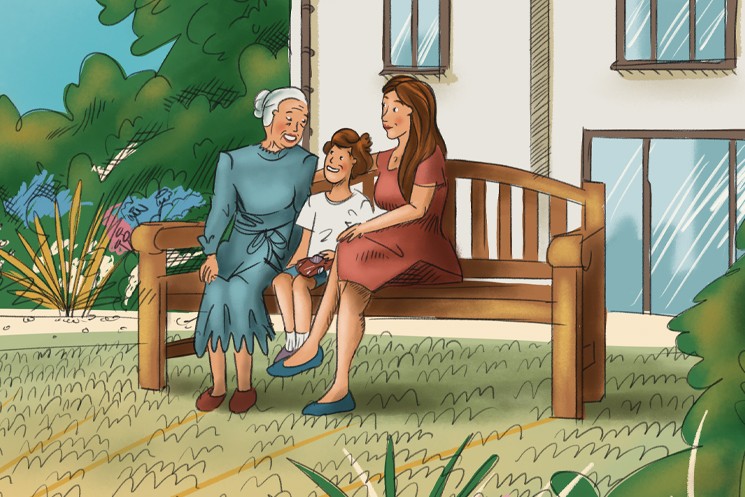Summary— The fact that a pension does not usually form part of your taxable estate for IHT purposes makes it a tax-efficient way to pass on wealth to the next generation.
— It is often the last pot to draw from after using up other savings that form part of your estate.
— There is increased flexibility with regards to how you access (or don’t access) your pension and how the associated death benefits are taxed.
— For Defined Contribution schemes, you are no longer forced into buying an annuity.
— If you die under the age of 75, the entire pension fund can usually be passed on tax-free.
— Pensions remain outside of the beneficiaries’ estate upon death.
— The benefits are amplified for those who are high earners.
The standard rate of IHT is 40%. This is charged on your taxable estate in excess of the Nil Rate Band (NRB) currently £325,000 per individual, taxed at 0%, when left to non-exempt beneficiaries, though various exemptions, allowances and reliefs can affect the amount subject to IHT.
Currently about 4% of estates in the UK pay IHT however recent trends suggest that more people are likely to face an IHT liability in the future according to the Office for Budget Responsibility, in part due to rising house prices and various thresholds being frozen until April 2026 (including the NRB which has remained frozen since April 2009). Even if you don’t have a large enough estate now, you may well do in the future (for instance if you receive an inheritance) so it’s important to plan ahead.
You may have already taken steps to mitigate future IHT such as: spending more, making gifts, investing in IHT schemes, setting up trusts or perhaps insuring against the liability. But don’t forget about the humble pension when it comes to IHT planning.
The fact that a pension does not usually form part of your taxable estate for IHT purposes makes it a taxefficient way to pass on wealth to the next generation.
The fact that a pension does not usually form part of your taxable estate for IHT purposes makes it a taxefficient way to pass on wealth to the next generation hence why, perversely, it is often the last pot to draw from after using up other savings that do form part of your estate.
Since the introduction of pension freedoms in 2015, there is increased flexibility with regards to how you access (or don’t access) your pension and how the associated death benefits are taxed. This can vary depending on your pension scheme, so it’s worth checking that your scheme can facilitate the options you want. If not, then you may want to consider a transfer to one that does.
For Defined Contribution schemes, you are no longer forced into buying an annuity. A popular option is to instead leave all your pension, or part of it, invested so that it can continue to grow free from income tax and capital gains tax, with the ability to flex the amount of any income taken. If you die under the age of 75, the entire pension fund can usually be passed on taxfree whereas if you die over the age of 75, then your beneficiaries will only pay income tax at their marginal rate when accessing the funds. Importantly, the pension remains outside of the beneficiaries’ estate and this process can be repeated indefinitely under current legislation until the funds are exhausted.
The benefits are amplified for those who are high earners with large estates making pension contributions because not only are they reducing the size of their estates, but also benefitting from higher rate / additional rate tax relief (40% / 45%) on the contributions going into the pension. In the past, one had to be mindful of how much was paid into pensions in the context of the pension Lifetime Allowance. However this is no longer an issue with the effective removal of the Lifetime Allowance from April 2023. Nevertheless, pension planning can still be a complex issue and it remains a fine balancing act in terms of the overall planning. Not to mention successive Governments may choose to reinstate the Lifetime Allowance.
A popular option is to instead leave all your pension, or part of it, invested so that it can continue to grow free from income and capital gains tax.
Beneficiaries can be whoever you want to inherit your DC pension – you are not limited to your spouse or dependants. Most pensions are held in a trust arrangement so the pension trustees are not bound by any instructions left in your Will hence why it’s important you complete and keep up-to-date your provider’s “Expression of Wish” form. This will help ensure your pension is passed on to who you wish to receive it and avoid delays when distributing the funds. This is not a legally binding document, however the trustees will do their best to accommodate your wishes.
Good wealth planning often comes down to structuring your estate so that your money is held in the appropriate tax wrappers, based on your own personal circumstances, allowing you to maintain access and control, whilst at the same time shielding your estate from future IHT. With this in mind, pensions are a valuable IHT planning tool that shouldn’t be overlooked.
Sources
https://www.gov.uk/government/statistics/inheritance-tax-statistics-commentary/inheritance-tax-statistics-commentary#iht-receipts-and-taxpaying-estates
Investment involves risk. The value of investments and the income from them can go down as well as up and investors may not get back the amount originally invested.
The information provided in this document is of a general nature. It is not a substitute for specific advice with regard to your own circumstances.
Any views expressed are those of the author. All figures were correct at the time of going to print. You are recommended to obtain professional advice before you take any action or refrain from action. You should contact the person at JM Finn with whom you usually deal if you wish to discuss any of the topics mentioned.
Click here for more articles from our Pension Report
Pensions as a tax efficient vehicle for Inheritance Tax planning
Download


